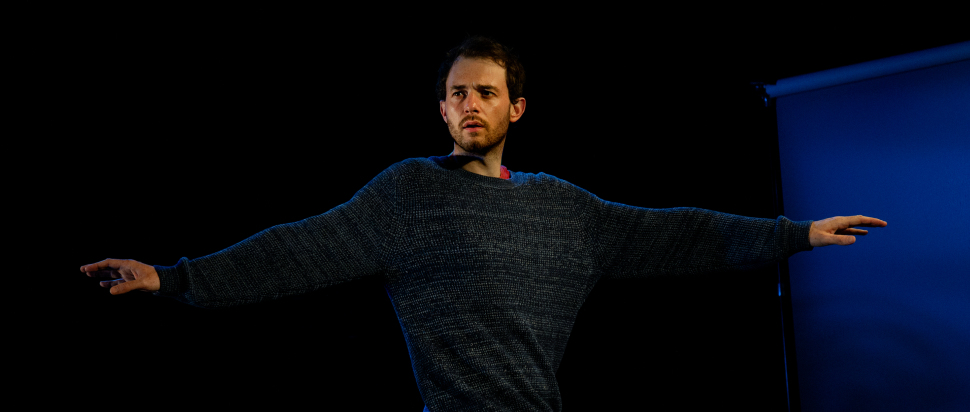Who Killed My Father @ Traverse Theatre, Edinburgh
Who Killed My Father, adapted from Édouard Louis’ acclaimed book, overextends itself by trying to fit a bit too much into its running time
Politics, queer identity, racism, sexism, classism, alcoholism, masculinity, love, trauma – Nora Wardell’s Who Killed My Father explores all these and more, with varying degrees of success. Adapted from Édouard Louis’ acclaimed book of the same name, the stage show attempts to grapple with Louis’ multitudinous themes, but its hour run-time and breakneck pace leave the viewer feeling more confused than empowered.
Our narrator, played by Michael Marcus, tells us of his life with his father and the impact of a disabling work accident on their relationship. It’s hard to effectively recount the story beyond this, insofar as there is one. Mostly, Who Killed My Father is a meditation on themes of oppression and memory, and their role in the lives of the 'lower classes'. A timely question, to be sure, but an attempt to run the gamut of oppression makes for a lack of critical or emotional engagement.
We follow the narrator as he tells us of all the times his father was disappointed in him, but also of all the times his father loved him. With a story that moves ahead at lightning speed, it’s hard to discern a traumatizing moment from one intended to be heartwarming. In one moment, we’re watching the narrator perform Barbie Girl for his father and his friends on Christmas Eve, desperately seeking the approval of his father, who slights him for fear of his overt femininity. Next, we’re with the narrator as his family watches the attacks on 9/11, a seemingly unrelated and baffling connection.
While the show is set in France, this is not evident until the very end of the show, placing us in a liminal space. This isn’t necessarily a bad thing – liminality is one of the few things that invites us in. But this lack of specificity fails at the end of the show, when the narrator names the major French political players of the 21st century, and the ways in which their policies have further disabled his father.
This moment is uncomfortably dissonant as until this point the story has been highly personal, a tale of a boy seeking his father's love and approval. Inviting politicians into the room is sudden and unnecessary. In Louis’ text, it’s clear that the answer to the question, “Who killed my father?,” in his eyes, is politicians. But onstage, a lack of engagement with French politics until the last ten minutes leaves the question open-ended and confusing.
The highlight is Michael Marcus' tender and earnest performance, managing to weave himself effortlessly throughout a tangle of plot points and social theory. His performance and the show itself are strongest when grappling with the issue of masculinity; Marcus shines when he lets a moment linger, which he does believably and with grace. His rage towards his father's failings is less believable than his heartbreak, a skillful nod to Louis and the scores of queer men before him.
Overall, Who Killed My Father is a project with heart that overextends itself. Falling into many of the tropes of blackbox productions, an intimate tale set at a breakneck pace is saved by Marcus’ performance and some moments of tenderly honest writing.
Who Killed My Father tours Scotland until 30 May
